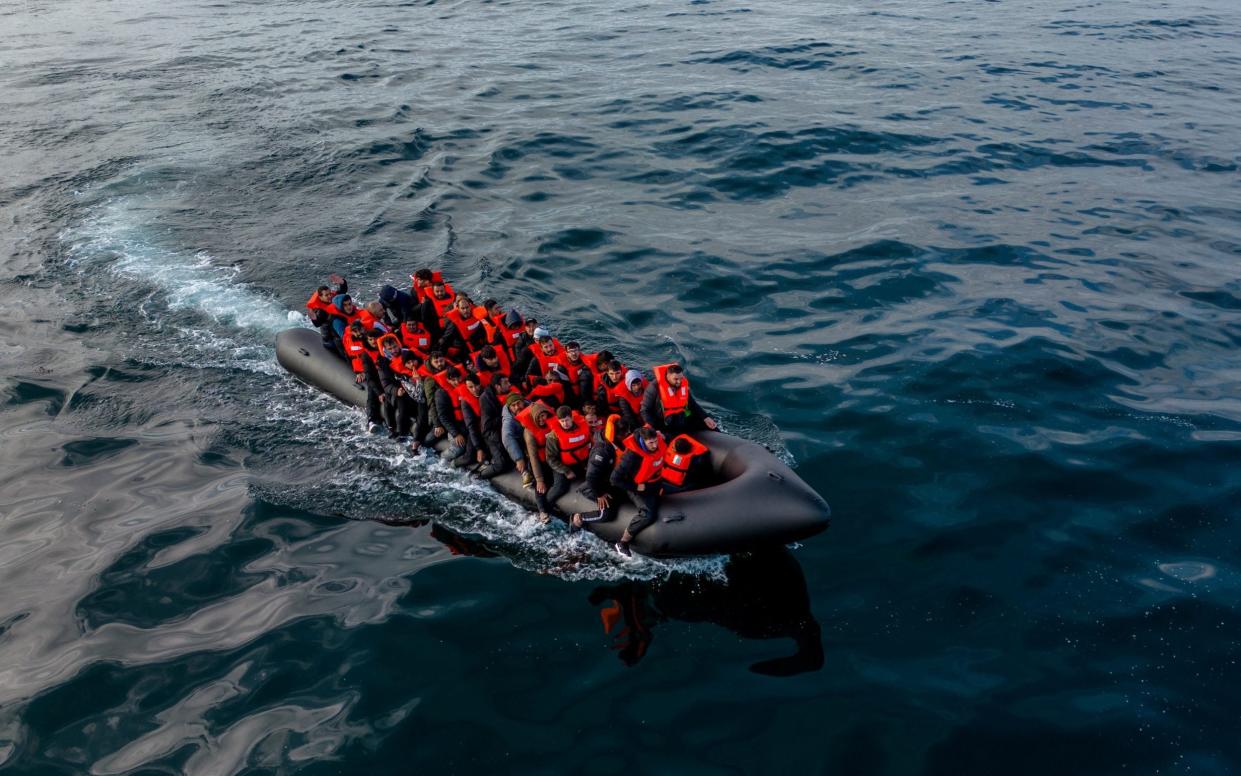The Rwanda scheme is a gamble – we must tackle the boats like terrorism

Over the past six years, I have watched events in the English Channel with a mixture of despair and fury, as tens of thousands of men, women and children continue to make the perilous crossing from northern France. Crammed into rickety boats and dinghies, that are completely unsuited to crossing the world’s busiest shipping lane, these people are pawns and victims in a ruthless criminal trade. Like all organised criminals the gangs behind this trade are motivated only by money. They don’t care that they’re placing people in danger. They don’t care when people die. The tragedy highlighted last month by the death of seven-year-old Sarah Alhashimi proves this. She was one of five people who perished in icy waters after leaving the beach at Wimereux, near Boulogne. Their boat was carrying 112 people.
More lives will be lost unless there’s decisive action to dismantle the gangs and disrupt their evil operations. The National Crime Agency (NCA) has been working hard in collaboration with the French authorities, but the record number arriving on British shores this year – almost 9,000 people already – shows there is still far more to do. By the time the craft are in the water it’s nearly always too late, so intelligence gathering and law enforcement work must be focused further away from the coastline, stopping the boats and gangs at source and along the routes they take.
There is no evidence whatsoever that the Rwanda scheme will stop the gangs and deter migrants from getting in their boats; it is a grossly expensive project, costing over £500 million, that will lead to the removal of only a fraction of asylum seekers who are in the UK. That’s a huge gamble with our money and vulnerable people’s lives. Instead, what’s needed is a radical new law enforcement approach – with stronger leadership, extra resources and a more coherent structure to protect our borders.
I led Counter Terrorism Policing for over six years. It’s a model of close partnership with intelligence agencies, government and multiple partners, all of whom have clear lines of responsibility and accountability for their single mission: to protect lives. It needed to be studied as a model response to this crisis. That’s why I am heartened to see Sir Keir Starmer putting forward practical policy proposals to turbocharge the work of the multiple agencies working on this most challenging of issues, and putting serious thought into how you break up the global business model of these evil criminal gangs profiting from human misery.
Labour’s New Border Security Command will not only marshall assets already available under the leadership of a new commander, it also provides a direct accountability line to the Home Secretary and enhanced firepower, with hundreds of additional UK investigators, prosecutors and officers deployed to work with their counterparts across Europe and beyond. I do not underestimate the challenge of bringing those resources into alignment and increasing the number of investigators, but it’s necessary, and strong leadership can achieve it. I am surprised it has not been considered before.
Sir Keir is right to draw parallels between our efforts to combat counter terrorism and the work needed to protect our borders. At its best, the former Office for Security and Counter Terrorism, on which the Border Security Command is based, provided central leadership, a shared set of objectives across agencies, and a strong basis through which to share intelligence and learning. Labour is also setting out new powers to be used by those working in immigration enforcement, which will be vital to both disrupting the gang networks and ensuring we can effectively build cases to increase prosecutions of these criminals. Too many are not facing justice for their appalling actions.
For Sir Keir’s plans to be most effective, the Border Security Commander he appoints will need all the resources promised, control of a dedicated budget, and the freedom to think creatively about how to get the best talent to recruit hundreds more specialist investigators, enforcement officers and specialist prosecutors the Party is committed to fund. It will be essential that all the agencies involved in securing our borders – the NCA, Border Force, intelligence agencies and the police – have the right systems in place to share information and that they are willing to do so. Well trained and well equipped, this model could provide a strong force to protect against any cross border national security threat in the future, once this desperate trade has been smashed.
This won’t be easy work. During a long policing career tackling organised crime and terrorism, I learned how criminal gangs switched tactics, adapted their methods and preyed on weaknesses to stay one step ahead. But with extra resources, a firmer grip from the centre and tougher powers, the new Border Security Command can make a huge difference.
Neil Basu QPM is the former assistant commissioner and national lead for Counter Terrorism Policing


